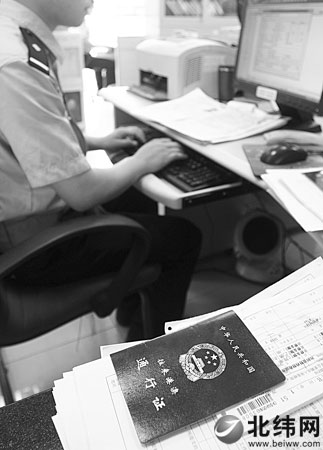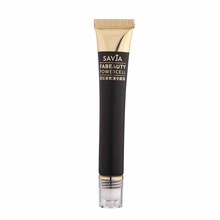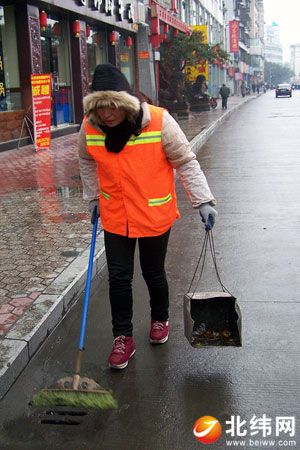Could humans have babies in space safely? Here's what we know.
The recently married couple tip their bellhop, drop their suitcases, and breathe out a sigh as they fall back on the bed. They wanted a gramworthy honeymoon, and for a few million dollars, they've got it.
Once their initial travel sickness wears off, they're feeling as frisky as any other newlyweds. Perhaps the only thing that could distract them from the marital act now is that incredible cabin view of infinite space, and the faint reminders of civilization glinting at them from Earth, some 250 miles away.
If space hotels come to fruition in the coming years or, more realistically, decades, cosmic vacations won't be a sci-fi fantasy. Even without hotels, longer orbital space flights all but guarantee tourists opportunities to join the 60-miles-high club. It's the "souvenirs" these couples could bring home that have a few researchers worried — enough to publish a public report on the risks associated with human conception in the future space tourism sector.
Bottomline: No one knows whether babies could be conceived in space without detrimental consequences to their health — there simply isn't enough research. While professional astronauts likely have a good grasp on why they shouldn't set out to make a starchild, less-informed travelers might not demonstrate the same level of restraint.
"It's going to be a very strong magnet for these couples. They'll want to be maybe in the history books, like, 'Hey, we created the very first naturally conceived baby in space,'" said Egbert Edelbroek, CEO of the space research company SpaceBorn United and one of the co-authors, "but they shouldn't want to."
SEE ALSO:Weird stuff happens when animals reproduce in spaceThe paper published in April captured some buzz — even some snickers from late-night host Jimmy Kimmel, who called them "nine very lonely authors" — for broaching a little-discussed issue. Though the intent was to get the burgeoning space tourism sector to think about how to discourage space sex that leads to pregnancy (Not sex altogether, one of the researchers assured Mashable. They're not prudes.), the topic brings into focus an existential problem: How could humans ever leave Earth in the event of a global crisis if people don't know how to procreate in space or any other world?
SpaceX founder Elon Musk has said his ultimate vision is to use a fleet of Starships to send 1 million humans to Mars by 2050. But if those pioneers die off because they can't have children, or healthy children, what's the point?
"They'll want to be maybe in the history books, like, 'Hey, we created the very first naturally conceived baby in space,' but they shouldn't want to."
 Will the first long-duration space journeys involving astronauts and their descendants have to be planned as one-way trips?Credit: Steven Hobbs / Stocktrek Images via Getty Images illustration
Will the first long-duration space journeys involving astronauts and their descendants have to be planned as one-way trips?Credit: Steven Hobbs / Stocktrek Images via Getty Images illustrationGravity and radiation levels pose challenges
In spaceflight, humans are exposed to different levels of gravity — sometimes less, sometimes more. Think about those roller coaster warnings at amusement parks prohibiting pregnant people from riding. They're in part because extra G-forces can lead to premature separation of the placenta from the wall of the uterus.
On the other hand, little or no gravity like on the International Space Station presents its own challenges: For the past 60 years, NASA has been working on how to keep adults healthy in weightlessness. As it is, astronauts are expected to exercise at least two hours a day on a treadmill or stationary bicycle to combat bone and muscle deterioration.
Research also suggests that cosmic radiation, like other sources of radiation, could damage DNA, reproductive organs, and sperm and egg cells. In women, depending on the amount of exposure, that might mean sterility, ovarian failure, and cancer, which may lead to early menopause or death. In pregnancy, the risks could include miscarriage and premature births. For men, too much radiation could also lead to reduced sperm count or sterility, though some scientific findings indicate sperm could be safely stored in space for a time.
Tweet may have been deleted
When it comes to embryos and fetuses, the news is just as grim. Radiation can cause growth delays, cognitive impairments, deformities, and higher risks of newborn death.
"We've got some ideas that there will be quite a lot of negative issues in the development of bones and musculature," said David Cullen, professor of astrobiology and space biotechnology at Cranfield University in the United Kingdom. "And all these other kinds of things inherently are driven by a combination of genetics, biochemistry, and responses to the local environment. So if you change that local environment, you expect all of those development states to be affected in some way — and, most likely, in a negative way."
Want more scienceand tech news delivered straight to your inbox? Sign up for Mashable's Light Speed newslettertoday.
Startup seeks to make reproduction in space work
The Dutch entrepreneur Edelbroek wants to make human reproduction possible in space by first taking sex out of the equation. His company, SpaceBorn United, may be the first in the world planning space-based research on in vitro fertilization, though it's hard to know what the often-secretive Chinese government may be doing.
Through a series of missions, the startup wants to conduct experiments observing the effects of partial gravity on embryo development. The company, which has about 30 mostly part-time employees now, would start with animal studies before advancing to human cells. In August, SpaceBorn United partnered with Independence-X, a Malaysian space exploration company, to conduct a suborbital drop test of its re-entry capsule containing biological samples.
So far SpaceBorn United has developed a miniature IVF and embryo incubator using microfluidics technology. The prototype hardware, which looks like a CD, has multiple tiny channels that hold sperm and eggs. The disc spins to simulate different loads of gravity while the device automatically impregnates embryos. Now the venture is working with a German company, Atmos Space Cargo, to launch mouse embryos on an orbital test flight by the end of next year, Edelbroek said.
 SpaceBorn United has developed a miniaturized IVF and embryo incubator using microfluidics technology.Credit: SpaceBorn United illustration
SpaceBorn United has developed a miniaturized IVF and embryo incubator using microfluidics technology.Credit: SpaceBorn United illustrationThe logistics of doing these experiments are complicated. Because the team needs to work with freshly harvested female cells, the company must have last-minute access to the rocket payload, making ride-sharing programs unfeasible. The cells only remain fertile for four to six hours.
But private industry will have to lead the way on space reproduction research, he said, because NASA and other government space agencies have onerous political challenges to navigate before engaging in such studies. In the United States, for instance, sex is already a taboo subject. Add on top of that the nation's complex culture war over reproductive rights, and the hurdles are monumental. Experts say the U.S. space agency isn't likely to get Congress on board with funding such endeavors.
They "can only work with baby steps — with fruit flies and frog eggs and some rodents — and never, never even speak about doing it with human reproductive cells," he said.
 While the experiment was largely deemed a reproduction success story in the mass media, tadpoles raised in microgravity were documented as having enlarged heads and eyes in scientific journals. Credit: Tom Trower / NASA Ames Research Center
While the experiment was largely deemed a reproduction success story in the mass media, tadpoles raised in microgravity were documented as having enlarged heads and eyes in scientific journals. Credit: Tom Trower / NASA Ames Research CenterMost of the company's investors are in the fertility sector because of the potential to improve assisted reproductive technology on Earth. They've also received interest in collaborating from neophyte spacefaring nations, such as the United Arab Emirates, that may want the prestige of being involved in a first like human embryo conception in space.
In the same vein as the space burial market, SpaceBorn United anticipates there will be affluent customers interested in paying for space-fertilized babies long before humans are even living somewhere beyond Earth.
"We've had other suggestions, like space cats and dogs," Edelbroek said.
 The prototype hardware, which looks like a CD, has multiple mini channels that hold sperm and eggs. Credit: SpaceBorn United
The prototype hardware, which looks like a CD, has multiple mini channels that hold sperm and eggs. Credit: SpaceBorn UnitedEthics of human reproduction research in space
Though the ultimate goal may be to one day make natural conception and childbirth possible in space, doing so won't be possible anytime soon, said Alexandra Proshchina, a neuroscientist at the Petrovsky National Research Center for Surgery in Moscow.
Related Stories
- How astronauts could get it on if they really wanted to
- Weird stuff happens when animals reproduce in space
- Does space romance make NASA cringe? It's complicated.
- NASA picked its moon astronauts. Here's what they'll do.
- Your next skin cream may come from NASA's outer space science
She and her colleagues have worked on animal reproduction studies in microgravity through several missions organized by the Institute of Biomedical Problems. In the 1990s, they participated in a Russian-Canadian experiment on the BION-10 biosatellite involving clawed frog tadpoles and an 11-day Russian-American experiment on space shuttle Atlantis centered on the development of rat embryos.
"(They) can only work with baby steps — with fruit flies and frog eggs and some rodents — and never, never even speak about doing it with human reproductive cells."
Then in 2014, along with Rustam Berdiev, a physiologist at the Lomonosov Moscow State University, they performed the world's first attempt to mate ornate day geckos in spaceflight on the Russian FOTON-M4 satellite, though the lizards died due to difficulties with the mission. The team has since started preparing an orbital experiment involving veiled chameleon embryos, but the project has stalled, in part because of funding challenges, researchers told Mashable.
 Likely private industry will have to lead the way on space reproduction research because NASA and other government space agencies have political challenges to navigate before engaging in such studies.Credit: DEA / L. RICCIARINI / De Agostini via Getty Images
Likely private industry will have to lead the way on space reproduction research because NASA and other government space agencies have political challenges to navigate before engaging in such studies.Credit: DEA / L. RICCIARINI / De Agostini via Getty ImagesDuring pregnancy, women adapt to changes in body mass, hormone levels, metabolism, and a host of other biological processes that put significant strain on their bodies. Even astronauts at peak fitness get spacesick, said Proshchina, who, along with morphologist Victoria Gulimova, responded to Mashable in writing to overcome translation issues.
"Subjecting pregnant women to such physical stress is not very humane," Proshchina said. "Moreover, it would be unacceptable to put the baby at risk."
Even if a baby could be delivered safely in space, scientists know even less about the impacts of the space environment on children and teenagers, said Alex Layendecker, a former Air Force space operations officer with a doctorate in human sexuality. He has recently founded the Astrosexological Research Institute, a nonprofit organization aimed at facilitating studies of sex and reproduction in space.
Cell division is more rapid in children than adults. When ionizing radiation penetrates a human body, it destroys bonds and can lead to cancer. If a child were to develop cancer, it might spread faster in outer space conditions than it would for an adult, he said.
 Even if a baby could be delivered in space, scientists know even less about the impacts of the space environment on children and teenagers.Credit: A. Martin UW Photography via Getty Images
Even if a baby could be delivered in space, scientists know even less about the impacts of the space environment on children and teenagers.Credit: A. Martin UW Photography via Getty ImagesIn terms of ethics, taking a minor away from the planet, even just for a space cruise, would cross a line, given the lack of data: Children can't provide informed consent, yet their lives likely would be at a much higher risk of negative impacts, he said.
Whether a human conceived and born in space would be able to adapt to other planets is a looming unknown. It's not even clear whether such a child could survive on Earth after coming home, said Gulimova, who also works at the Petrovsky National Research Center for Surgery.
Or, would the first long-duration space journeys crewed with astronauts and their descendants have to be planned as one-way trips?
"There are many questions, and many more ground-based and orbital experiments that will have to be carried out, before happy parents on board the spacecraft hear the first cry of the first citizen of the Universe," she said.
TopicsHealthNASA
(责任编辑:资讯)
-
Keurig K Mini deal — get $30 off at Target
 GET $30 OFF:As of Aug 28, you can snag a Keurig K Mini single-serve coffee maker for just $59.99, do
...[详细]
GET $30 OFF:As of Aug 28, you can snag a Keurig K Mini single-serve coffee maker for just $59.99, do
...[详细]
-
 实行出入境证件数码照片社会化采集将给申请人带来方便本报讯 日前,记者从市公安局出入境管理处了解到,为了进一步提高出入境证件的签发质量,方便申请人在办理出入境证件前自由选择照相馆拍摄办证用数码照片,全省
...[详细]
实行出入境证件数码照片社会化采集将给申请人带来方便本报讯 日前,记者从市公安局出入境管理处了解到,为了进一步提高出入境证件的签发质量,方便申请人在办理出入境证件前自由选择照相馆拍摄办证用数码照片,全省
...[详细]
-
 本报讯 昨13)日,全市公安局长会议召开。会议总结回顾了2010年全市公安工作开展情况,安排部署了今年公安工作。会议要求全市公安机关今年要围绕平安创建下功夫,深入打击违法犯罪行为,并结合自身队伍建设,
...[详细]
本报讯 昨13)日,全市公安局长会议召开。会议总结回顾了2010年全市公安工作开展情况,安排部署了今年公安工作。会议要求全市公安机关今年要围绕平安创建下功夫,深入打击违法犯罪行为,并结合自身队伍建设,
...[详细]
-
 本报讯昨26日),广州亚运会皮划艇静水项目女子双人皮艇500米决赛在广东国际划船中心结束,雅安籍选手王凤与队友于腊梅以1分42秒993的成绩领先日本队,稳登冠军宝座,为中国皮划艇队夺得了本届亚运会上最
...[详细]
本报讯昨26日),广州亚运会皮划艇静水项目女子双人皮艇500米决赛在广东国际划船中心结束,雅安籍选手王凤与队友于腊梅以1分42秒993的成绩领先日本队,稳登冠军宝座,为中国皮划艇队夺得了本届亚运会上最
...[详细]
-
Understanding Relational vs. Non
 Relational databases and non-relational databases primarily differ in the types of data they store a
...[详细]
Relational databases and non-relational databases primarily differ in the types of data they store a
...[详细]
-
 路过药店时,很多市民都习惯到免费的体重秤上测量自己的体重。近日,有人将这种体重秤搬上街头,摆放在银行门口或药店附近,一些市民误以为同样免费,站上去称体重后,不得不为此买单。14日,市民小任和家人在市区
...[详细]
路过药店时,很多市民都习惯到免费的体重秤上测量自己的体重。近日,有人将这种体重秤搬上街头,摆放在银行门口或药店附近,一些市民误以为同样免费,站上去称体重后,不得不为此买单。14日,市民小任和家人在市区
...[详细]
-
 一册购好菜|连州菜心采购指南_南方+_南方plus【来源】连州市农业农村局
...[详细]
一册购好菜|连州菜心采购指南_南方+_南方plus【来源】连州市农业农村局
...[详细]
-
 五年锤炼,五年沉淀。多少风雨耕耘,几度春华秋实。苦累、汗水、收获、喜悦……五年来,我们不断优化产业结构,促进农业增效、农民增收;五年来,我们积极推进土地流转,加大优势产业基地建设;五年来,我们始终坚持
...[详细]
五年锤炼,五年沉淀。多少风雨耕耘,几度春华秋实。苦累、汗水、收获、喜悦……五年来,我们不断优化产业结构,促进农业增效、农民增收;五年来,我们积极推进土地流转,加大优势产业基地建设;五年来,我们始终坚持
...[详细]
-
[From the Scene] How ‘world’s first oil town’ is wrestling to become ‘green'
![[From the Scene] How ‘world’s first oil town’ is wrestling to become ‘green'](http://res.heraldm.com/content/image/2024/08/26/20240826050707_0.jpg) City of Baku, Azerbaijan (Getty Imgage)BAKU, Azerbaijan -- Driving just a few miles from the venue o
...[详细]
City of Baku, Azerbaijan (Getty Imgage)BAKU, Azerbaijan -- Driving just a few miles from the venue o
...[详细]
-
 本报讯 为深入推进城乡结合部交通环境专项治理工作,按照省、市决策部署和《汉源县城乡结合部专项治理行动方案》的文件精神,汉源县交通局公路路政管理中队及时安排、积极行动、重拳出击,按照“清洁化、秩序化、优
...[详细]
本报讯 为深入推进城乡结合部交通环境专项治理工作,按照省、市决策部署和《汉源县城乡结合部专项治理行动方案》的文件精神,汉源县交通局公路路政管理中队及时安排、积极行动、重拳出击,按照“清洁化、秩序化、优
...[详细]

 Yoon approves labor minister's appointment
Yoon approves labor minister's appointment 汉源县 营造整洁好环境
汉源县 营造整洁好环境 市委宣讲团将赴县区宣讲十七届五中全会精神
市委宣讲团将赴县区宣讲十七届五中全会精神 遏制艾滋病 宣传进校园
遏制艾滋病 宣传进校园
